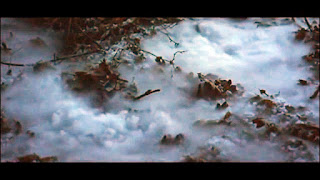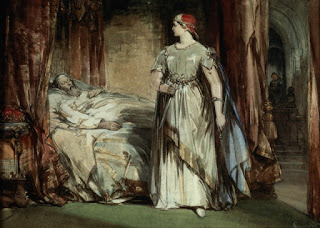After Macbeth kills Duncan, there are several references to demons and the unnatural, hinting (not so subtly) that Macbeth is going to hell. During Scene 2, no matter how much he tried, Macbeth could not say "Amen" after the men said, "God Bless Us." While he can still say the word itself, he is no longer able to use it in a prayer. Whether this is his own subconscious preventing him due to his own feelings of guilt or because he is well and truly damned is debatable. Later, Macbeth says, "No, this my hand will rather/ The multitudinous seas incarnadine,/ Making the green one red" (2.2.79-81). This seems to be saying that none of the seas in the world will wash his hands clean (that they would turn red instead), but the final line "Making the green one red" (2.2.81) could suggest Macbeth murdered out of envy (green with envy). Something I found to be interesting was when Lennox said, "Some say the Earth was feverous and did shake" (2.3....

